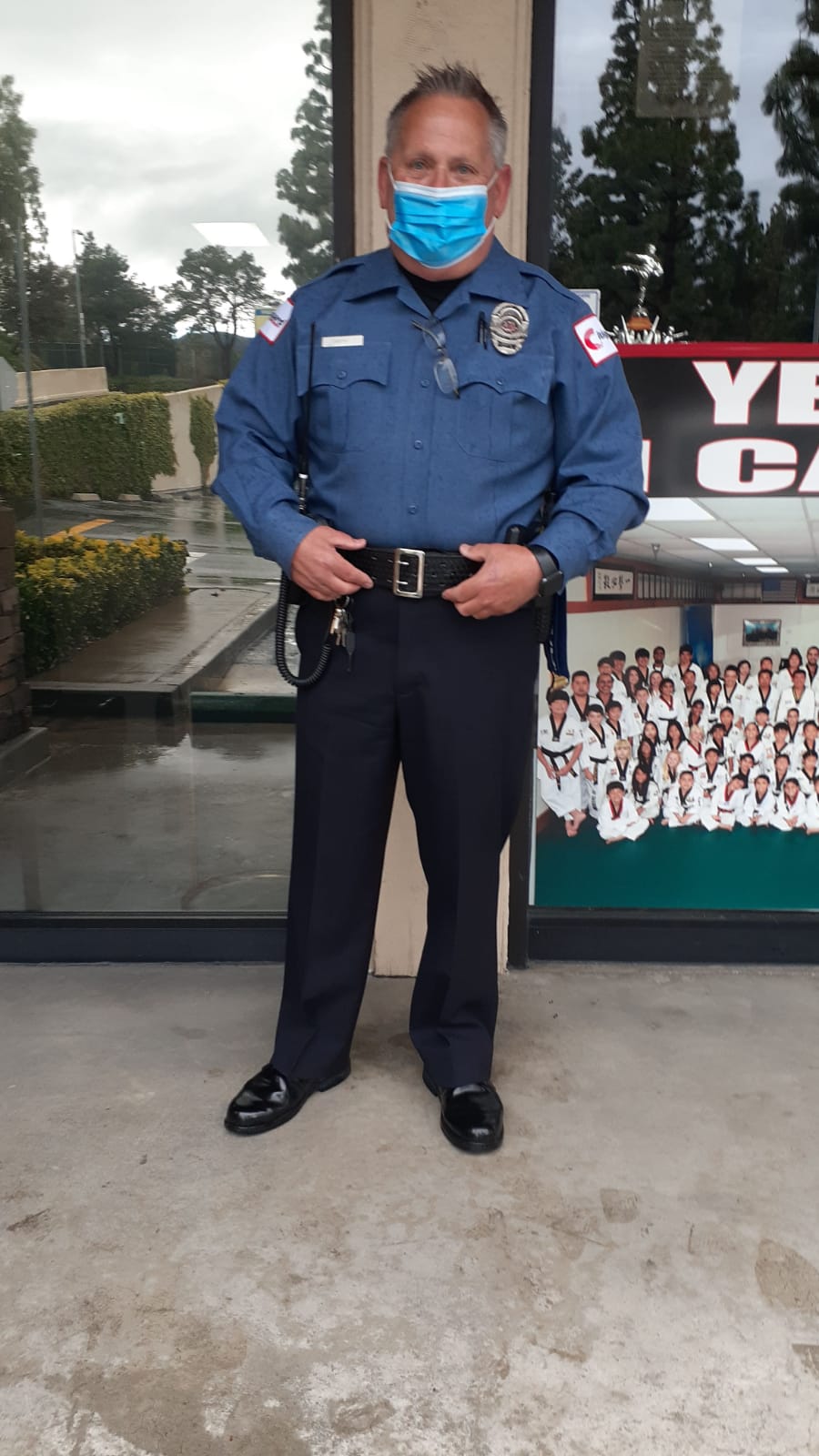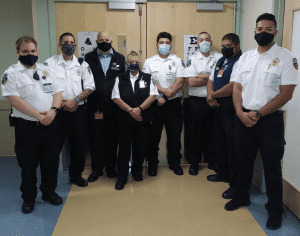All Categories
Featured
Table of Contents
Armed Security Near Me Venice, CA
Protective Shield Security
3435 Wilshire Blvd Ste 2360 Los Angeles, CA 90010(213) 344-0059
Protective Shield Security
, various acts especially prohibits exclusive safety personnel from using the terms Probation Policeman, regulation enforcement, police, or authorities officer. Alberta and Ontario prohibit the usage of the term Safety and security Officer, which has actually been in widespread use in the United States for many decades.
Specialized VIP guard solutions and firms are in high need and are defined by their capacity to protect celebrities and execs during times of agitation (Venice Armed Private Security). There is a significant difference in between individuals performing the obligations traditionally related to security guard and persons that take an extra energetic duty in safeguarding persons and building
24 Hour Security Guard Venice, CA
The last are frequently extremely trained, in some cases armed depending on agreements set with clientele, and are most likely to interact with the public and to face the criminal element. These staff members tend to take pride in the title "Safety and security Officer" or "Security Policeman" and derision the label of "guard".
There is sometimes little partnership in between responsibilities executed and payment, as an example some shopping center "gatekeeper" that are subjected to major threats make less per hour than "industrial security personnel" who have less training and responsibility. Nonetheless, there are now a lot more settings in the security duty that separate not simply the titles, however the job itself.
Safety and security representatives are typically utilized in loss avoidance and individual or executive security (bodyguards) roles. They generally function in plainclothes (without an attire), and are usually extremely educated to act legally in direct defense of life or home. Safety and security officers are private people, and therefore are bound by the exact same legislations and guidelines as the population they are gotten to serve, and consequently are not enabled to represent themselves as police under charge of legislation.
24 Hour Security Guard Venice, CA
Each of the six states and 2 territories of Australia have different regulation that covers all safety tasks. Licensing management in each state/territory is diverse and is executed by either Police, Chief law officer's Division, Justice Department or the Division of Consumer Affairs. New South Wales(Cops) Protection Sector Act 1997 & Security Market Guideline 2016 Victoria(Cops) Private Protection Act 2004 Queensland(Justice & Attorney-General) Safety Providers Act 1993 South Australia(Customer & Business Affairs) Safety And Security and Examination Agents Act 1995 Western Australia(Police) Safety And Security & Related Tasks (Control) Act 1996 & Safety And Security & Related Activities (Control) Rules 1997 Tasmania(Cops) * Security and Investigation Representatives Act 2002 Northern Region(Justice) Private Security Act & Private Safety And Security (Safety And Security Officer/Crowd Controller/Security Firms/Miscellaneous Matters) Rules; Australian Funding Territory(Regulatory Solutions) Safety And Security Market Act 2003 & Security Industry Guideline 2003 All of this regulations was planned to boost the integrity of the private safety and security industry.
This has actually not always been the situation and the introduction of this need is expected to control the educational criteria and data base to ensure that the certain task can be effectively done. Stringent demands are put down regarding the type of uniform and badge made use of by security business. Uniforms or badges that may be confused with a law enforcement officer are forbidden.
While the term guard is used by companies, federal government bodies and individuals, the term gatekeeper is deemed even more ideal. Bouncers make use of the title Crowd Controllers, and Shop Investigatives make use of the title Loss Avoidance or Asset Protection Officers. Security Police officers might carry guns, handcuffs or batons where their duty requires them to do so and then only when functioning and have the ideal sub-class certification to their permit.
Armed Security Company Venice, CA
Technical innovations in concerns to drones, face recognition, and robotics are expected to proceed to enhance the private protection landscape in Australia., private security drops under the jurisdiction of Canada's ten districts and three regions. All ten of Canada's districts and one of its areas (the Yukon) have legislation that controls the contract protection sector.
The majority of provinces in Canada regulate the use of handcuffs and tools (such as firearms and batons) by contract protection firms and their workers, either outlawing such usage totally or permitting it only under specific scenarios. In addition, in some districts, some terms, or variants of them, are restricted either on an uniform or in self-reference.

Section 17 of the Firearms Act, 1995 makes it a crime for any kind of individual, consisting of a gatekeeper, to possess forbidden or restricted firearms (i.e. hand guns) anywhere beyond his or her home. There are two exemptions to this prohibition found in sections 18 and 19 of the Act.
Armed Hospital Security Venice, CA
In the past, just workers that helped agreement safety and security, that is, protection firms, were regulated in British Columbia. As of September 1, 2009, in-house protection police officers and personal investigators came under the jurisdiction of the Security Services Act and Safety Providers Regulation - Venice Armed Private Security. Bodyguards and bouncers, effective November 1, 2009, are also based on these regulations

Separate training and permit is needed for the safety guard to lug pepper spray, extendable baton or a gun. Rehearse of weapons usage is mandatory every year and is regulated by the Ministry of the Inside, to guarantee the safe handling of pepper spray and such. Weapons can only be carried by bodyguards and cash-in-transit guards or when securing an individual or object that is substantial in terms of public interest.
A person that has actually been forcefully detained can only be released by the police.
Armed Security Guard Companies Venice, CA

Former legislation enforcement and military workers can ask for partial or overall waivers for the delivery of the card. The Safety and security Representative card has a legitimacy of 5 years and its revival is subject to continuing education obligations.
If the trainee does not pass he is not permitted to work anymore till he completes his training with a favorable outcome. After a favorable result a new Security ID can be issued and is legitimate for 3 years, after which the officer must go through a history check by the neighborhood authorities again, to restore the ID.
Protective Shield Security
Address: 3435 Wilshire Blvd Ste 2360 Los Angeles, CA 90010Phone: (213) 344-0059
Email: info@protectiveshieldsecurity.com
Protective Shield Security
Every uniformed security personnel in the Netherlands need to have the V sign on his/her attire to recommend the public they are managing an exclusive guard; this rule is mandated by the Ministry of Justice. Protection attires may not look comparable to authorities attires, and may not include any type of kind of ranking designation.
Security Guards Venice, CAArmed Security Companies Near Me Venice, CA
Security Guard Company Venice, CA
Security Guard Company Venice, CA
Armed Private Security Venice, CA
Private Armed Security Venice, CA
Armed Security Companies Near Me Venice, CA
Security Guard Company Venice, CA
Security Guard Agency Near Me Venice, CA
Armed Private Security Venice, CA
Security Officer Company Venice, CA
Security Guard Agencies Venice, CA
Armed Security Venice, CA
Armed Security Guards Venice, CA
Armed Security Company Venice, CA
Private Security Guard Companies Venice, CA
Hire Armed Security Venice, CA
Armed Security Companies Near Me Venice, CA
Security Guard Hire Venice, CA
Security Guards Company Near Me Venice, CA
Armed Hospital Security Venice, CA
Armed Security Guard Company Venice, CA
Armed Security Companies Venice, CA
Private Security Armed Venice, CA
Armed Security Officer Venice, CA
Private Security Armed Venice, CA
Armed Security Venice, CA
Armed Security Companies Venice, CA
Find A Good Seo Solutions Venice, CA
Finding A Local Seo Services Pricing Venice, CA
Protective Shield Security
Latest Posts
[target:city] Gutter Cleaner Service Near Me
Gutter Cleaner Service [target:city]
Roof Cleaning Company Claremont